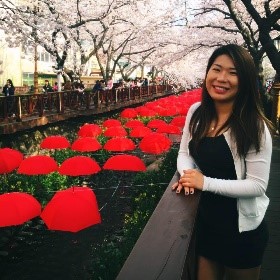This post is written by alumni, Cherish Picklyk.

I wanted to open up a discourse on the representation of special need students in South Korean schools. As a foreign language teacher, I noticed in the professional trainings and interactions with my colleagues, little was mentioned to me about working in our English classrooms with special needs. The absence of any discussion about special needs students made me wonder why.
Specifically, the English Program in Korea (E.P.I.K) affiliated with Korea Ministry of Education hires native English speakers to develop English speaking abilities and the cultural exchange between Korea and abroad. However, there is no mention of integrating students with special needs into the English classroom under the teaching guidelines section on their website.
Furthermore, as I continued to build connections with other English teachers, I heard the common theme of special education being an ambiguous, obscure subject. In particular, we were not all on the same page in our expectations for inclusive teaching practice, creating modified lesson plans, and using accommodations.
I had to find out more.
Narrative Inquiry
(“It is a form of qualitative research that involves the gathering of narratives—written, oral, visual—focusing on the meanings that people ascribe to their experiences, seeking to provide “insight that (befits) the complexity of human lives” (JOSSELSON, 2006, p.4).)
One sunny day in France, I sent out surveys to seven foreign language teachers in South Korea. I wanted to gather some experiences and frame this information in a narrative inquiry paradigm.
Three Men and Four Women aged 23-45, were interviewed about their knowledge of special education in their workplace setting in schools. These experiences from teachers are from diversified backgrounds who have been teaching in Korea from a span of one year to eight years. Most importantly, all teachers that participated in this survey are working within various cohorts of classrooms: private and public, and rural and urban settings across South Korea.
Let’s hear what they had to say.
What About Special Needs Students?
The Interview:
I was wondering about your opinion as a school teacher in South Korea. In your school, what learning structures are put in place for students with special needs: including behavioural, learning, or physical challenges? How are these children being integrated into English classes academically and socially?
Are they equally participating in the classroom?
Do teachers or parents show shame or pity in discussing children with special needs?
Any other thoughts?
Meet the Teachers
Keith – 8 years working as a foreign language teacher across South Korea, currently in a private academy in metropolitan city, Seoul
“I have seen and also been told how kids with special needs are treated in the classroom. They are usually included in the classroom with kids their age, but they do not always get the attention or help they deserve.
I feel that teachers in the classroom are not given the tools to assist these special students to succeed and flourish. Classroom teachers have deadlines to meet and cannot provide what these students need. Therefore, they become sort of babysitters for these students and sometimes have other students looking after them when they (teachers) are occupied.
In my years of teaching in Korea, I have had these types of students in my classrooms and have heard horror stories about how they lived at home and see their behaviour at school. But, I feel that when they come to school it is kind of a safe haven for them and makes them feel like a normal child when they mix with other kids. It probably takes them away from what negativity they encounter at home (physical, and/or verbal, neglect, malnourished, and so forth).”

“In regards, to children with special needs they are not challenged at all in my English classroom to learn. They are actually ignored and I am encouraged to ignore them by my Korean co-teacher. I was told to focus on the ‘normal’ children because they are seen as more capable of learning. The are also bullied in the classroom and the Korean co-teacher ignores the bullying.
I’ve never personally interacted with a parent of a student with a disability, but my Korean co-teacher showed pity, not shame. As time progressed I showed these students more attention and began to change my lessons and teach them separately when I got the chance; as well as, pairing them with a stronger student in the classroom who can translate or help them personally as the lessons progressed. I also gave them different work tailored to their learning needs to better enhance their learning as well as their understanding of English.
There’s my experience in a nutshell!”

“I am sorry but I don’t have any input. I have never come across any students with special needs.”

“I have special needs in all three of my schools. In middle and high school, they are treated wonderfully. They have a teacher who is trained for special needs and their own fully decked out rooms. They do most of classes with the other students and then have review classes. Even things like cooking and basic finance, general life skill classes too.
I see that the other students are really nice to them in class, no one is rude or talking down to them. But, who knows what happens outside of class though but to me everyone gets along. Teachers are all really nice to them although the special needs students are super quiet in class, not sure if it is because they or shy or what? Even when I put in extra effort to encourage them to participate they are usually very low level or shy about their skills.
There was one student in my middle school who had a hard time speaking Korean which was affecting all of her classes obviously since teachers could barely understand her. The school paid for a speech specialist for a few months and her speaking ability in Korean and English is ten times better now. It must have been expensive to have a specialist come in for one student but they took great care of her and she is much happier and well behaved now.
In my elementary school there is no special needs teacher. My elementary school only has about 50 students and maybe 2 or 3 special needs kids so they are just in class like everyone else. This means they are way behind and the teachers just don’t have enough time to teach the class and give the time to the students to keep up. The teachers are usually frustrated with the students because they get bored and have behaviour problems.
Overall, I am really happy with the middle and high school treatment and set up. But kind of disappointed with the elementary support. I know the school is on a small budget and likely can’t afford a teacher and room for 2 or 3 students. I would like to see what it is like at a larger elementary school with more funds.”

“Well, I don’t know much, but I do know that we have a special needs teacher specifically who works with them in a pull out setting. My classes are levelled and the bottom 25% don’t take classes with me, which I think most of them fall into this category.
A couple special needs students have been recently integrated into my classes. I don’t see them often, but there was one particular student who has a bunch of pencils and just plays with them all throughout class.
So, I asked the teacher about it. He told me to engage with him and to try and get him to do whole group responses. And encouraged me to push him and “not leave him alone.” And then the next week he addressed the faculty saying this same thing. I thought that was really good and pretty progressive for Korea. Except, to not expect accommodations.”

“I think students with special needs or behavioural challenges aren’t properly acknowledged. They were usually in low level English classes and not given the adequate attention to get ahead. I feel if my co-teacher facilitated more care to them they could advance, but instead she ignores their issues. I feel that there is only so much that I can do. I call on them for answers, play games, and doing more active activities. After a while the games become to rowdy so my co-teacher got upset and cancelled them. We then returned to rudimentary work.
I don’t feel that my co-teacher shamed or pity them. She just didn’t motivate them or care to teach. I heard that she is quitting so we will see if improvements come. I never interacted with parents so I cannot comment on that.

“I think it depends on the school and especially with the teachers. Like for Danseong working with one teacher, she neglects and ignores on of the special needs students. Upon asking her why she replied: ‘He’s not capable of learning English and doesn’t have the knowledge.’
I was literally SHOCKED because back home in Canada we are taught that every student is equal and should be treated the same. So, because it is her classroom, I don’t want to cause any trouble so I just let things be. Sometimes, I do try to work with the students one on one. But it’s hard enough when he has a learning disability, let alone trying to communicate with him in another language he has no idea.
But then in my second school……. I see my co-teacher treating two students with learning disabilities just the same as students, giving extra time from the teacher. For example, when students are asked to read a word, I would whisper in the student’s ear and he/she would read it out loud versus other students we would push them to figure it out themselves.
Also, for the school festivals, there is one student in a wheelchair and the school included that student in the play, even though it was only for 2 minutes. But it was nice to see the smile on that student’s face being apart of the show.
I don’t really interact with the parents as much, but I think the education system here can do so much better incorporating students with disabilities. I just think that there’s not enough funds delegated into special education.
There You Have It
A few perspectives on the current state of teaching English in Korea, and some of the realities of providing English education to students of all abilities. It should be noted to bear in mind the language barrier between the English and Korean teachers in the schools. It was difficult to communicate and find out further information within our schools directly.
If you have any other thoughts or further information, please comment below.
Thanks for reading.

You can find me, Amanda Teacher, making new friends with neighbourhood cats and dogs, getting lost in foreign countries, swimming in crystal blue waters, or sampling new coffee roasts. As a disability studies alumni, I strive for disability rights in whatever part of the world and work situation I find myself in.
Currently, happily existing in France enjoying baguettes, learning French and finding beauty in everyday things around me.